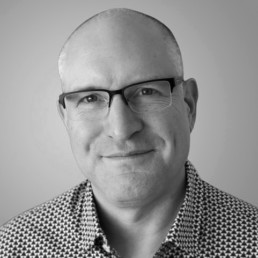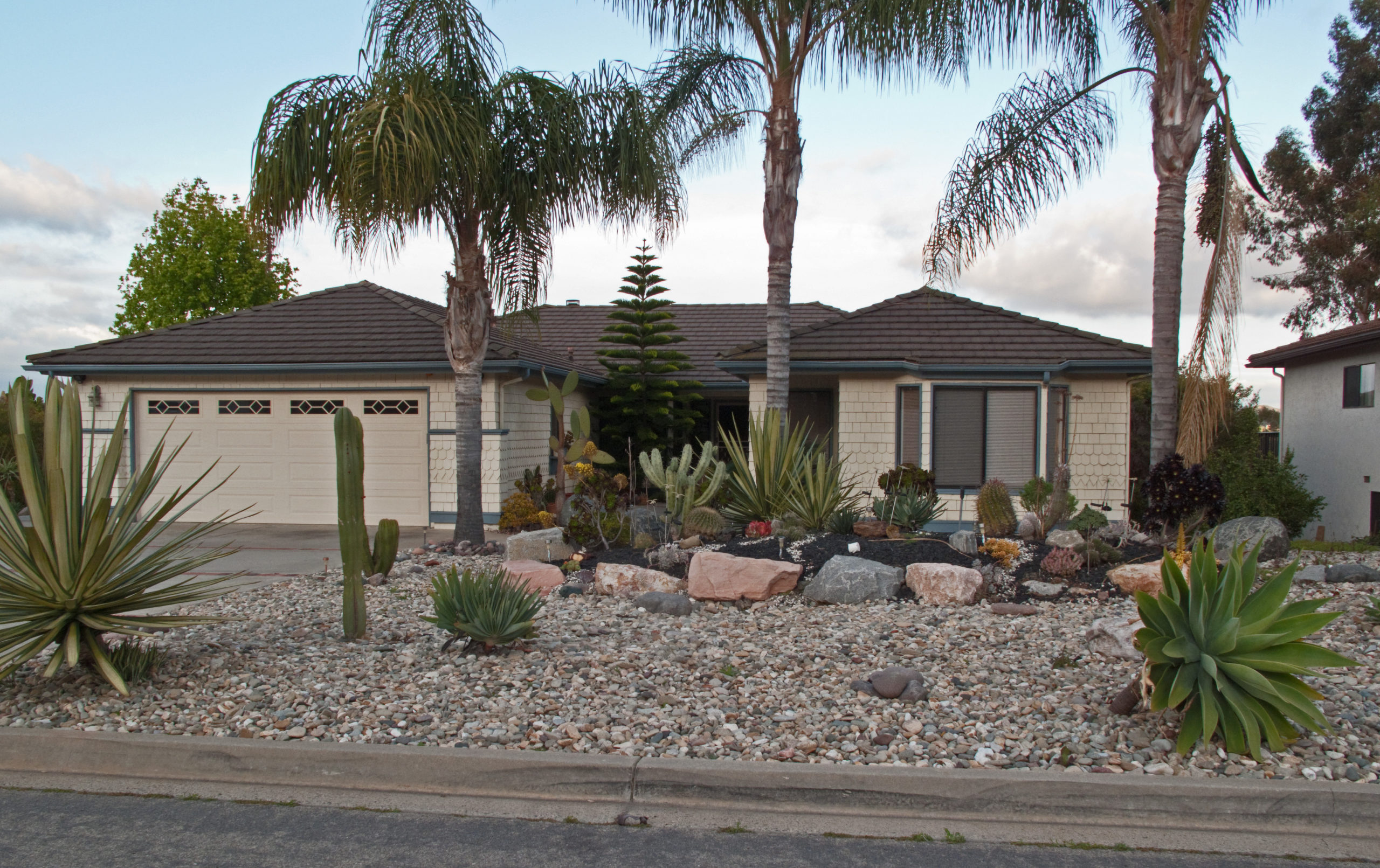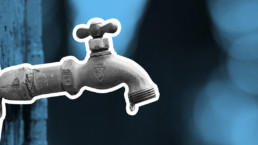Cows, Colleges, and Contentment… and Capitalism

I have always been intrigued by the concept and study of contentment and happiness. Northfield, Minnesota’s slogan of “Cows, Colleges and Contentment” lured me in when I was looking at undergraduate schools – it was a sunny day at Carleton College when I visited in the summer of 1982. I am pretty sure that under my college yearbook picture (book was recycled in our last “lighten the load” purge before we recently moved, so I can’t verify), my stated future goal in life was “contentment.” In our divisive times, it feels like we all might benefit from added scientific wisdom on the topic…
A recent article, “Things That Will Make You Happier Than Winning the Lottery,” piqued my interest. In it, Harvard Professor Sanjiv Chopra explores the research and findings. It turns out that money truly does not buy happiness – people who win the lottery lose the excitement soon after: “The research shows that at the end of a year, they’re back to baseline. Some are less happy,” Chopra says.
Chopra also shares Three Keys to being happier people: Purpose (Dharma), Giving, and Gratitude. The findings resonate with me and feel consistent with the hopeful themes of the season!
It is interesting, then, how important having access to the right amount of capital enables Chopra’s three keys. It is difficult to serve your purpose, give, or express appropriate gratitude if you don’t have the funds to do the work.
ESG-driven impact investors attempt to strike a similar balance. Creating inclusive, socially impactful wealth for all people is not possible without the wherewithal to take meaningful steps forward.
The good news is that the purpose-based recipe is working for a new brand of responsible capitalism. The need for evolved ESG-driven models continues to grow, supporting companies actively doing the important work of our time: purposefully helping solve the climate emergency, giving alternative buckets of capital that support entrepreneurs in disadvantaged communities, and expressing gratitude through paying fair and equitable wages.
At Carleton, I was privileged to get to know Paul Wellstone in a unique way. Before he served as the Senator from Minnesota, he taught Political Science at Carleton. He was a huge sports fan and former college athlete. We would share a beer (or 2) at Sayles Hill after basketball games – it was a different time and our interpretation post-game carbo loading seemed encouraged… He would always have some interesting perspectives on our strategy and approach. He usually thought we could pressure the ball more on defense and rebound with more effort (he was right – you can always play harder).
As Senator, Wellstone became famous as a voice for communities that had not been well served by the status quo. He was known for the maxim, “We all do better when we all do better.” He believed capitalism had a deep responsibility to be more inclusive while promoting innovation and allowing all entrepreneurs the opportunity to thrive in its competitive marketplace.
The late Senator would approve of the ESG-driven impact investing movement. Howard Buffett, Warren’s grandson, recently tweeted about how the ESG-driven movement needs to be intentional about its growth, and strive for more uniform measurements that all can understand.
Young people are driving the change. Students are demanding change. One of the interesting things about the juxtaposition of colleges and capitalism is that the wealth gap we see in individuals is exaggerated in the university setting between the wealthy and less advantaged schools. For the more elite schools, college endowments have grown with strong returns. The less advantaged schools are in danger of shutting down. Students are seeking transparency and demanding more alignment with the Environmental, Social and Governmental goals of the ESG movement. Chopra’s own school has bowed under student pressure and has announced they will be changing the way they measure returns in a more inclusive way – the good news for Harvard is that ESG-driven business is growing and showing excellent returns.
For me, as I have matured, I know a more inclusive capitalism will lead to a better, more contented world. We need all the help we can get on that front. And, from one of the learnings from our sports world experience, we can’t let perfect be the enemy of the good as we take direct action. Significant capital and innovative models are leading the change, and it is OK to take one step at a time.
I am grateful that we still have some time, however limited, to give our duty some hope.
Craig Jonas is the CEO and founder of CoPeace. As a forward-thinking holding company, CoPeace is building a portfolio of carefully selected for-profit companies with measurable social and environmental impact. To learn more about impact investing, check out CoPeace’s Intro to Impact Investing.
Tears for Tears

The tears in our cultural fabric are deep. We are torn and divided. We have little common ground. Do we give up? Eat more cheese? Stay on the couch? Invest in Chevron?
The challenges in front of us are real and consequential. The U.S. election season highlighted the current schism in our world and exposed the inequalities in front of us all:
- There are no easy solutions for the CoVID-19 pandemic. People are sick and people are dying. My 26-year-old son spent a night in the ER and my sister-in-law’s father died last week. The virus is scary and real.
- The struggle for racial justice has been deeply exposed through our current divisions.
- The climate crisis does not give us much time to get our act together.
These bullets are overwhelming. The key is to work to find possible solutions and create a plan of action, and then act. We can solve problems by attacking them head on, incrementally.
The ancient Chinese philosopher Lao Tzu taught that there is your way, my way, and the way of truth. We need to separate people from the problem and focus on the common ground that is the truth:
- I know it is obvious, but science and data must lead the solutions for the pandemic. My wife is a nurse and she is encountering CoVID-19 patients. Because she and the nurse-doctor team take it seriously, wear their PPE, wash their hands, and keep physically as distant as possible (not that easy when giving shots, etc.), nobody on her team has contracted the virus. Business and school can be conducted if it is done very carefully. Follow the data to open safely.
- We all need to recognize the racist past of our world and be honest about how it has created systems of inequality. We share this past. Actively creating new systems, and businesses, that change the access and opportunities for disadvantaged communities provides multiple pathways to change. Diversity does make us stronger. Fixing would help (here is one proposal driven by data). Support companies like FreeCap.
- The climate crisis is real. While the clock is ticking, there are solutions that are creating change and opportunity. It ends up being a good business decision to care about the long-term future of our world (I know I say that often). Watch David Attenborough: A Life On Our Planet. Support companies like Uncharted Power.
It is a difficult time to write a blog – to recognize the real challenges, while simultaneously seeking common ground – and authentically demonstrating optimism for a brighter future.
But we do share so much as one human race. We can be together. We do have the agency to affect positive change. Our common bond is a better collective future. Drink more water. Move with purpose. Invest in impact. Invest in Change Finance.
Allow tears of joy to flow and to start healing the deep tears. Seek solutions to the problems and find common ground to move forward. I am.
Craig Jonas is the CEO and founder of CoPeace. As a forward-thinking holding company, CoPeace is building a portfolio of carefully selected for-profit companies with measurable social and environmental impact. To learn more about impact investing, check out CoPeace’s Intro to Impact Investing.
Why This, Why Us, Why Now

Why This | And Now for Something Completely Different
Business as we know it has not been working. Inequality continues to grow. Many people do not have access to opportunities or tools to improve their current economic situation. As of 2016, the average net worth of a Black family was about 10 times less than the net worth of a White family, according to the Brookings Institution, with no ubiquitous pathways to improvement.
Impact investing has shown strong promise as a vehicle for change. The ability to directly invest in businesses doing good work, while providing a strong financial return, produces opportunities to generate real change. Most of the current opportunities are more accessible to people of wealth or only available through vehicles that negatively screen businesses doing less bad. It turns out, it is a good business decision to care about the long-term future of our world and the multiple bottom lines therein.
We need new models to harness the potential impact investing is showing, so more people can participate in the opportunity. The deep research on impact and ESG investing shows that long term horizons are beating companies that only focus on short-term returns, all other effects of their business be damned.
Why Us | We vs. Me
As business seeks more responsible standards, companies that create inclusive, socially impactful wealth for all people have the opportunity to grant additional access for change. Democratizing the models of impact investing generates newfound opportunities and pathways for more individuals.
Directly investing in things that are doing active good can help change the world, one company at a time. Uncharted Power is one of the companies that is creating real change – run by an incredible woman working to bring power and infrastructure to communities that do not have access to the grid.
When communities are improved in a collective, inclusive, clean way, the effects can trickle up to society at large.
Why Now | “Good Trouble!”
The Bubonic Plague led to The Renaissance – a more energized, youthful, creative, and inclusive world. The COVID-19 pandemic, the struggle for racial injustice, and ongoing climate crisis are collectively our current plague. And, an opportunity.
Now is the time to change the business landscape and make the future a better place. Business holds a unique and deep responsibility in this global dynamic. Equity and real returns, like communities of wealth have experienced for generations, can be made available to everyone through innovative investment vehicles, like holding companies.
These models need to be consistent philosophically with the ideals of our younger generations, who have unique access to information and are decidedly more inclusive in their thinking. My 22-year-old son said his entire generation has increased anxiety and, he continued, “It’s the Boomers’ fault.”
The time for action. I, for one, want to do what I can do make the future a better place for future generations.
“Get in good trouble, necessary trouble, and help redeem the soul of America.”
— John Lewis speaking atop the Edmund Pettus Bridge
Selma, Alabama – March 1, 2020
Craig Jonas is the CEO and founder of CoPeace. As a forward-thinking holding company, CoPeace is building a portfolio of carefully selected for-profit companies with measurable social and environmental impact. To learn more about impact investing, check out CoPeace’s Intro to Impact Investing.
5 Reasons Why It’s A Good Time To Invest

It was not the normal “Woodstock of Capitalism” scene in Omaha recently, but 89-year-old Warren Buffett went for five hours straight at the Berkshire Hathaway shareholder meeting. Incredibly impressive. Historically, I have enjoyed witnessing this Rite of Spring live – the experiences inspired the creation of CoPeace as a holding company.
It was not the same listening to “The Oracle” in the virtual setting, and he was clearly more subdued and measured without the live shareholder-fans. But he continued to expand on deep wisdom for all of us, and especially our future generations, to hear.
History, it turns out, teaches. Warren has learned well. Throughout his five hours of musing, Mr. Buffett went through some of the trying times we have collectively experienced and explained how patient investors win over time, and that we must continue to invest now in our better future. Of his many gem-quotes from this year’s meeting, I like this one: “I do not want to come up with anything different than capitalism, but I certainly do not want unfettered capitalism.”
So, inspired by Warren, I have taken the liberty to modernize, channel, and incorporate my interpretations of his teaching. Here are five reasons it is a good time to invest, from my perspective:
1. Timing – Reading the Defense.
If you are able, it is smart to invest now and continue to dollar-cost-average as things ebb and flow, even if it is a small amount every month. One of the benefits of the downturn, especially for young people, is that people can get into the market at a discount from the recent highs. As a former coach, we always taught our players the ability to “read the defense” to make appropriate decisions and adjustments. In the case of markets, the defense changes more unpredictably than in sport, so instead of trying to time things perfectly, it is best to steadily add to your portfolio, especially with inexpensive ETFs that are diversified (several are more sustainably based compared to traditional S&P 500 ETFs, like Change Finance).
2. Opportunity to Affect Real Change – Purpose and Profit.
Another one of Warren Buffett’s quotes we reference often at CoPeace is, “Good profits are simply not inconsistent with good behavior.” Impact investing marries some of the traditional intent of philanthropy with achieving a strong financial return. I fully believe the new wheels of commerce will have to include much more inclusive bottom lines. Although there is an understandable objection of wanting to spend money right now when the future seems unclear, the timing is now to begin to bring about real change. I strongly recommend reading Jed Emerson’s Purpose of Capital.
3. Engaging Young People.
We are in the early stages of a huge (multi-trillion dollar) transfer of wealth from the Boomer generation to younger generations. The Oracle of Omaha always encourages a long-term vision, but Mr. Buffett is not Mr. Perfect and he would be the first to admit this. And though I personally was originally deeply attracted to his model and still own some BRK.B shares, I do not agree with a lot of what he invests in. Young people clearly have passion around environmental and social impact. Social entrepreneurs and impact investors account for this impact much better than many traditional industries.
4.Potential for Dramatic Returns.
With expanded equity crowdfunding and new ways to democratize investment, there are new tools to provide long term returns. Investing in companies that are funding business as a force for good will be the “new normal” after the COVID pandemic ends. These companies have the potential to provide returns that exceed market returns. Be aware, though, that, as Jim Cramer has said: “Bulls make money, bears make money and pigs get slaughtered.” (I can’t believe I am quoting Jim Cramer in a blog inspired by Warren Buffett, but I have used this quote and wanted to attribute appropriately!) One of Mr. Buffett’s most principled teachings is that equity investing beats bond investing over the long term, with patience.
5. Love – Empathy.
Ok, most/many people do have a portfolio, so much of what I argued above is completely moot. At CoPeace we are trying to provide new tools to give more people access to the ability to initiate some equity, to begin to retrace the wealth disparities we are facing. COVID can provide a restart and engage new communities and opportunities. Bottom lines that include profit, planet, people and all of the interdependent, caring variations, will become the norm.
And, yes (thanks to Crosby, Stills & Nash – seemed an appropriate way to end a nod to Mr. Buffett and Love and the Future!):
Their father’s hell did slowly go by,
And feed them on your dreams
The one they picks, the one you’ll know by.
Don’t you ever ask them why, if they told you, you will cry,
So just look at them and sigh
And know they love you.
Blog extra… We recently conducted a Financial Chalk Talk, especially designed for coaches and the sport community that had not had a lot of access to much financial education growing up (which is most of us). The talk featured many of themes discussed above and you can see it if you click here.
Craig Jonas is the CEO and founder of CoPeace. As a forward-thinking holding company, CoPeace is building a portfolio of carefully selected for-profit companies with measurable social and environmental impact. To learn more about impact investing, check out CoPeace’s Intro to Impact Investing.
Thankful For Change

I am feeling deeply appreciative and thankful, privileged and responsible. That is a lot of feelings mixing together (exercise and lunesta help).
- Without parents who sought out the education that expanded their horizons past, and including, their rural and small town Wisconsin roots…
- Without supportive friends and family who often came from communities of some privilege…
- Without crazy diverse experiences interacting with global communities of many kinds…
- Without a committed team of people willing to believe in where we are going…
We would have no chance to have the opportunity to change the world in our little way here at CoPeace.
My parents grew up in loving, supportive homes. Though they would not have been considered wealthy by most American measures, they did not worry about their next meal or having a warm bed. Their life allowed them to grow and explore with confidence – to live in places like Chicago and India so that they could experience new cultures. I appreciate the start they afforded me.
Without family and friends like Seanna, Jeff, Meg, Brad, Dez, Robert, and Sarah (and 20+ others), we would not have had the resources to get our venture going. They have provided significant cash and connections to launch us in a way most people would not be able to afford. And, it turns out you need resources to create a new, impact-driven holding company in a model that is unusual for regulators. I am very thankful.
I recognize the privilege that comes with my particular access. We take this responsibility very seriously. With friends and family committed to trusting where we are going, failure is not an option.
We were recently interviewed by a woman from New York who is writing a story on new models in impact investing. She was impressed with our progress, saying others have not been able to pull off what we are doing. We told her we knew why! If we did not have the trust of our friends and family network, we would not have the resources for the required legal, audit, regulatory, technological and other costs to get to the finish line!
Most people in our global village do not start with these advantages. Not even close. We are working hard to create a new tool that is designed to provide an innovative approach to allow everyone to generate equity and wealth-building through our upcoming Direct Public Offering. What we are doing is difficult and the interrelated systems of privilege are quite deep – many of these systems are designed to exclude new approaches. We are thankful to have the opportunity to create this different type of access. We look forward to big news in 2020, and beyond!
I am content to be what I am not content to say.
– Poet Alex Stevens, at age 80
Craig Jonas is the CEO and founder of CoPeace. As a forward-thinking holding company, CoPeace is building a portfolio of carefully selected for-profit companies with measurable social and environmental impact. To learn more about impact investing, check out CoPeace’s Intro to Impact Investing.
The Math Doesn't Add Up in America’s Gun Debate

Technology has evolved quite a bit faster than biology. Conflict is natural – solving conflict with assault weapons is not.
In 1789, the Second Amendment authors did not foresee semi-automatic rifles firing 30 rounds in 15 seconds (the racial and historical context also purported a much different application of the well-regulated militia’s rights to bear arms, and intent).
My initial thesis for this blog was that following the money would unveil why guns specifically designed to kill people continue to be sold and supported by so many in American culture, and there is a lot that is obvious to support this trail. But, overall, the numbers just don’t add up. The total sales of guns to civilian Americans is surprisingly small. The amount spent on gun lobbying is dwindling. The revenues and the expenditures just do not justify the senseless violence. The influence is out of whack with the math. It is solvable. We can all be on the same team, here.
According to the IBIS report, the total sales of guns and ammunition was $11 billion in 2018, and the industry employs about 84,000 people. Even if the overall size of the gun industry is many times that, it still pales compared to even individual mega-corporations in the U.S. with revenues over $100 billion. Walmart itself has annual revenues over $500 billion and employs more than 2 million people (yes, Walmart also sells about 20% of overall ammunition sales in the U.S., so there is clearly some intersection here). Here is a list of some of the largest companiesby revenues.
The NRA only spent about $56 million during the 2016 elections. Their revenues are going down.
When I started this blog, I hypothesized it wouldn’t be possible to fix the current gun industry in America. While researching, I realized that changing the equation is possible. The debate does not need to be intractable. The common enemy is the senseless violence. Bi-partisan common sense measures, background checks, and an assault weapons ban are just the start as we search for more inclusive bottom lines. The math can be beat.
Ed Stack, the gun-owning CEO of Dick’s Sporting Goods, showed incredible courage by changing the way the sports company sells guns. Stack changed the math by eliminating the sale of semi-automatic weapons and raising the age of any firearm to 21 years. Other companies have followed this leadership, for example, Milwaukee-based Penzey’s Spices leads with anti-violent messaging in their marketing. And, perhaps companies like Google, whose company code started with “Don’t Be Evil” and also has a good run of financial success, can join a coordinated effort to proactively promote less violent messaging.
The NRA has an opportunity to rebrand and embrace gun safety and a push a hunting and sport focus in a more sustainable way. They might even reverse their current decline. Evolved capitalism demands longer term, inclusive horizons. Families and young people are demanding a different approach. In a gathering of gun violence victims, Brenda Moss rallied people to fight for change, drawing from her personal experience.
At CoPeace, we use the Head + the Heart + the Math to look for solutions in a fresh way, searching for both a strong financial return and measurable positive social or environmental impact. It is time to harness our collective biology and change the tools of this specific math. We can do it together. We can do it now.
Craig Jonas is the CEO and founder of CoPeace. As a forward-thinking holding company, CoPeace is building a portfolio of carefully selected for-profit companies with measurable social and environmental impact. To learn more about impact investing, check out CoPeace’s Intro to Impact Investing.
...Or We Are Screwed

Though I was six years old when Wisconsin Senator Gaylord Nelson, the founder of Earth Day, received a standing ovation at Denver’s Currigan Hall on April 22, 1970; his words must have penetrated deeply: “Earth Day can – and it must – lend a new urgency and a new support to solving the problems that still threaten to tear the fabric of this society… the problems of race, of war, of poverty, of modern-day institutions.”
I was living in Wisconsin then, and live in Denver now. I remember the Packers beating the Raiders in the 1968 Super Bowl, the moon landing in 1969, and I remember the first Earth Day in 1970. Senator Nelson was certainly quite prescient. Despite the raised awareness through the Earth Day campaigns, things have gotten much worse. In a 48-hour span this month, the Denver area experienced 80º weather with sunshine, followed closely by a “bomb cyclone” blizzard – the second this year. Climate change is wreaking havoc on our world and it requires dramatic alteration to our current business practices.
Unfortunately, none of this is new information. Fortunately, impact-driven investment is a growing industry, providing competitive returns, and actively working to fund businesses solving climate change challenges. According to the April 2019 Global Impact Investing Network, the size of the impact investing market has grown to $502 billion. And, Michael Holder of GreenBiz notes that the total sustainable/impact related investing has grown 34% globally since 2016 to over $30 trillion in 2018.
At CoPeace, we have started introducing some of our holding company and portfolio ideas to friends and family. We like the CoPeace idea of putting complementary solutions under one umbrella, using the organizing principle provided by the holding company approach (we will be announcing some of our early investments soon).
While I was in Wisconsin, my nephew, a senior in high school, returned from school as we were discussing CoPeace. He came through the door and proclaimed they had just talked about impact-grounded investments in his economics class. In the words of his economics teacher, “It is critical to demand more long-term responsibility from business or we are screwed.”
Sources:
https://history.denverlibrary.org/news/earth-day-turns-45and-dpl-conservation-collection-turns-55
http://www.nelsonearthday.net/docs/nelson_26-18_ED_denver_speech_notes.pdf
https://thegiin.org/assets/GIIN%20Market%20Sizing%20Report%20Press%20Release.pdf
https://www.greenbiz.com/article/global-sustainable-investing-assets-surged-30-trillion-2018
Craig Jonas is the CEO and founder of CoPeace. As a forward-thinking holding company, CoPeace is building a portfolio of carefully selected for-profit companies with measurable social and environmental impact. To learn more about impact investing, check out CoPeace’s Intro to Impact Investing.
Overwhelming Challenge; Accepted

It is overwhelming. Sometimes it is paralyzing. The challenge of maximizing your individual part to most effectively reduce your carbon footprint to combat climate change feels overwhelming; especially in the developed world, where too much consumption is so commonplace.

In an effort to have an impact, we live in a built-green, solar-paneled house; xeriscaped our front and back yards to reduce water consumption; use responsible investment vehicles like DSI and CHGX exchange traded funds; use the light rail when able and other small efforts. I know it is not enough. We still do not have an electric car and still live in the protected bubble of suburbia, with its overfilled weekly garbage containers…
For us, we have settled on a concept of reduced consumption as a way to cope and do more. And, since diet is an important component, we found the “reducetarian” fit this approach well! Fundamentally it seeks to reduce the amount of animal proteins consumed, but does not completely eliminate animal proteins from the diet. We eat meat a couple of times each week, but try to round out with other options. Our dietary exploration has motivated creative choices from Asian and Middle Eastern cultures and cuisines.
I know this might be a rationalization, but it feels like a strategy that can lead to some balance.
When I was a head college coach, I inherited a team that had not been good for a long time. At the first halftime speech, I threw out the “even the longest journey begins with a single step” idiom to emphasize the growth and the future path for the team. With the reducetarian approach, I feel like the journey has a better chance for success.
Challenge accepted. Do what you can do, but do something. Climate change is one of the first pillars for CoPeace PBC. Grow your money for good.
Craig Jonas is the CEO and founder of CoPeace. As a forward-thinking holding company, CoPeace is building a portfolio of carefully selected for-profit companies with measurable social and environmental impact. To learn more about impact investing, check out CoPeace’s Intro to Impact Investing.
What is Your Original Face Before You Were Born?

I remember leaving Bardwell Smith’s Carleton College Buddhism class (circa 1986) and “inventing” a concept that has been lurking in my brain ever since. I called the concept “interdependent flux,” which simply meant everything is deeply related and everything is always changing. This may have been my way to answer one of the course koans (a Buddhist riddle).
I am the son of a music teacher and minister/psychotherapist; my parents taught me to love and think critically. I lived in India when I was young, where I learned that you do not need material things to be happy. I have traveled the world, where I realized that people are the same wherever you go. I have been a coach, a teacher, an entrepreneur, and the head of US delegations, where I grew to understand compassion, patience and leadership. I earned a Ph.D., and learned that conflict is natural and can be harnessed for growth.
Enter CoPeace PBC, a holding company for profitable businesses creating measured positive impact. At 53 with a long entrepreneurial bent, it has become my next step. Interdependent flux demands our society modernize capitalism to include long term effects and social responsibility more deeply into the free enterprise equation. Profit for profits sake has created a dirty, unsustainable world. This is untenable for future generations. CoPeace is a responsible solution, creating a new Berkshire Hathaway for younger, caring audience.
The CoPeace quest is decidedly idealistic. The good news is data is beginning to better show companies that take a long-term view on how their measured practices can positively impact our world are indeed performing better than the old models.
From my experiences, I have learned that in order to be successful, it is all about the TEAM. I am more than happy to announce that we have started out extraordinarily well on that front, and we look forward to introducing Meg, Hanan, Lilly, Jacob, and the team in future blogs and vlogs. Our intention is to be radically inclusive and be attentive to the needs of our youth.
“Everything I’m not, made me everything I am…” (K. West, Everything I am).
CoPeace is a cumulation of my life experience. It is what I want my legacy to be. Please join us on our journey. We know it will not be easy and we know it will not be quick; but we are committed to the long term success of our vision. We seek to help us all find our true, interdependent face; and Grow Your Money for Good!
Craig Jonas is the CEO and founder of CoPeace. As a forward-thinking holding company, CoPeace is building a portfolio of carefully selected for-profit companies with measurable social and environmental impact. To learn more about impact investing, check out CoPeace’s Intro to Impact Investing.







